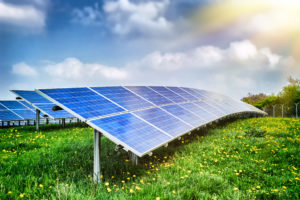In the future America will be the greatest energy producer in the world, and ironically one of the greatest energy conservers.
ENERGY PRODUCER:
I was reading some articles in Foreign Affairs Magazine. They’re too good not to share.
Natural gas and oil have been rediscovered in America by the use of horizontal drilling. Oil and gas are trapped in vast amounts anywhere the geography is made up of shale. By drilling horizontally (sideways) instead of vertically (up and down) extraction is cheaper, and amounts are greater.
This is not the hidden story however.
In America, our legal system defines private property as the top of the ground and everything under the ground. Everything under the ground ends at the center of the earth. In America, when you own property, you own it all.
Not so in other countries. Either the government owns all the property, or the property owner only owns the ground they stand on. So, if a small entrepreneurial energy company knocks on your door and offers to drill for natural gas and oil, and share the profits with you, you can do it, because it is your property all the way down.
In America private property is a big deal, a VERY BIG DEAL.
That’s what allows quick risk taking to take place in energy exploration. That’s why all of a sudden America is becoming the number one energy producer in the world. No other country in the world has that kind of philosophy toward private property. Just when you thought America couldn’t do anything right, it comes up with something really right. Energy is the world’s greatest strategic asset.
Its philosophy and ideas have won out. China has shale, Europe has shale. What they don’t have is America’s idea of private property, and an entrepreneurial tradition of risk taking.
ENERGY CONSERVATION:
We still need to conserve energy and reduce hydro carbons from multiplying and causing more manmade climate change.
America has had steady progress in coming to grips with this challenge. One of its biggest issues is making consumer products that people will buy.
For example we still don’t buy enough electric cars. Why? They don’t go far enough and they aren’t cheap enough.
But over the next ten to fifteen years they will. Of the 14 million new cars sold each year, in the future 7 million will be electric or equivalent cars, as opposed to the 150 thousand electric cars that are sold today.
We’ll compete with Europe and China as the world’s most effective energy conservers.
SOME QUESTIONS:
Why aren’t we as successful at conserving energy as we are at producing energy. Three reasons come to mind: One, Americans have an anti- intellectual bias. Just because a scholar says we have a climate problem, doesn’t mean Americans will hop to. Two, we don’t have enough Élon Musks at the energy conservation level. For example, electric cars are EXPENSIVE to produce. Three, the American political system is not as progressive at developing energy conservation laws, as they are at maintaining energy production laws.
(Energy is the primal force moving through the universe and beyond. If there is no energy, there is nothing. Before the universe there was energy.)
MEETING AT THE CENTER:
Over the next ten years energy production and energy conservation will meet at the center. Energy production will arrive first, creating economic security for America. Energy conservation will arrive a little later, ensuring that temperatures and air pollution do not cancel out the progress we make in the other.
